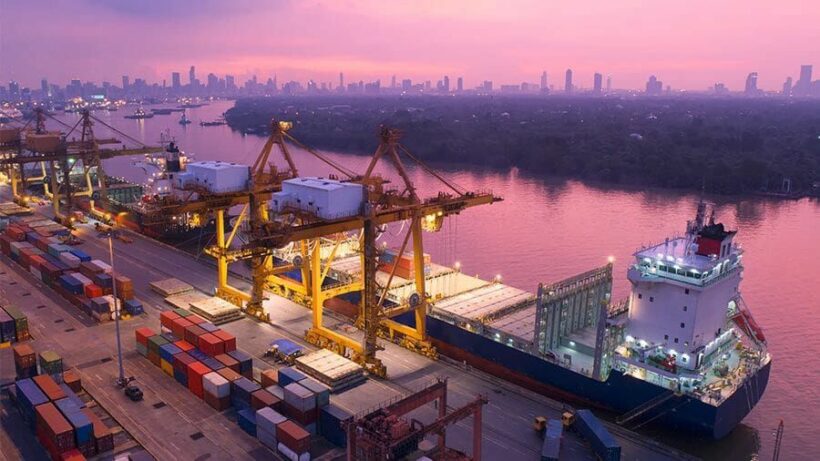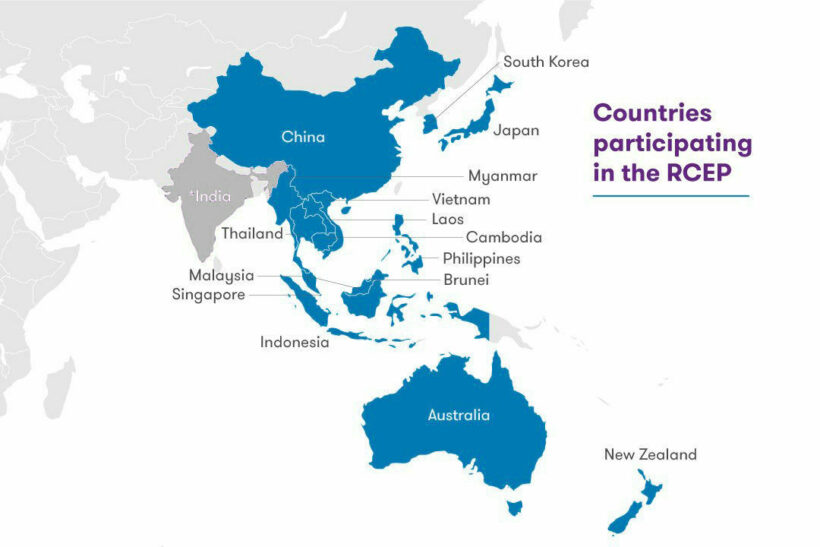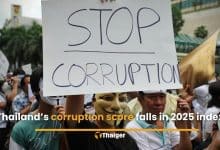The world’s largest trade bloc launches today – January 1, 2022

The new Asian regional trade pact, the Regional Comprehensive Economic Partnership, or RCEP, becomes effective as of today. The RCEP is the world’s biggest free trade agreement, larger than the EU, the Comprehensive and Progressive Agreement for Trans-Pacific Partnership, the EU, the Mercosur trade bloc in South America, and the recent US-Mexico-Canada Free Trade Agreement.
RCEP includes all the ASEAN countries (Thailand, Singapore, Myanmar, Indonesia, Malaysia, Laos, Vietnam, Brunei, Philippines and Cambodia), plus Japan, South Korea, Australia and New Zealand. And China. India pulled out of negotiations last year because of concerns it would not be able to protect its domestic industry as well as its agricultural sector. India’s exclusion from the bloc reduces its size by some 1.4 billion people. But the statement from the signatories said “the door is still open for India to join in and it would be welcome”.
RCEP’s inclusion of China could help steer regional politics throughout 2022, and is the first agreement of its type between China and Japan, as well as Japan and South Korea.
The pact was signed on November 15, 2020.
 RCEP’s 15 participants account for approximately 2.3 billion people, around 30% of the world’s population, and a total GDP of US$28.5 trillion. The new regional trade bloc will remove tariffs on 91% of traded goods in the region, encourage a unified market, codify intellectual property and e-commerce, and standardise rules on investment.
RCEP’s 15 participants account for approximately 2.3 billion people, around 30% of the world’s population, and a total GDP of US$28.5 trillion. The new regional trade bloc will remove tariffs on 91% of traded goods in the region, encourage a unified market, codify intellectual property and e-commerce, and standardise rules on investment.
Thailand’s Commerce Ministry estimates that 29,891 goods would enjoy zero tariffs from today’s launch of the RCEP. Remaining goods will see their tariffs reduced, eventually to zero, over the next 20 years.
China will kick off the agreement and open its market to 653 Thai goods. Originally Chinese officials agreed to a mere 33 items but has now extended their launch zero-tarries with Thai pepper, pineapple processing, coconut water, TVs, poly styrene products, automotive parts and paper. Synthetic rubber and wiring harnesses are also on the lost.
Japan says they will reduce duties on tomatoes, beans, asparagus and garlic powder, and, eventually, frozen pineapple and roasted coffee. For their part, South Korea will reduce customs duty on fresh, dried and frozen fruits, including mangosteen and durian from Thailand, and later pineapple juice and fishery products within 15 years.
Apart from the reduction of tariffs, RCEP will also provide more incentives for businesses to source raw materials. This will help with paperwork and certifications within the region, under the bloc’s rules of origin.
RCEP is also expected to attract foreign investment into Thailand for technology and innovation, research and development, environmental protection, education and aircraft maintenance.
In the last decade, Thailand’s main trading partners out of the RCEP countries have been Japan, Vietnam and China – about 50% of Thai exports. At the same time, around 60% of Thai imports come from China, Japan and Malaysia.
SOURCE: Bangkok Post
Latest Thailand News
Follow The Thaiger on Google News:


























